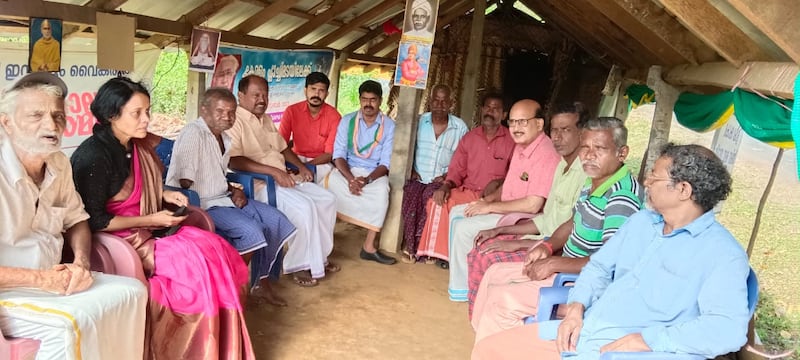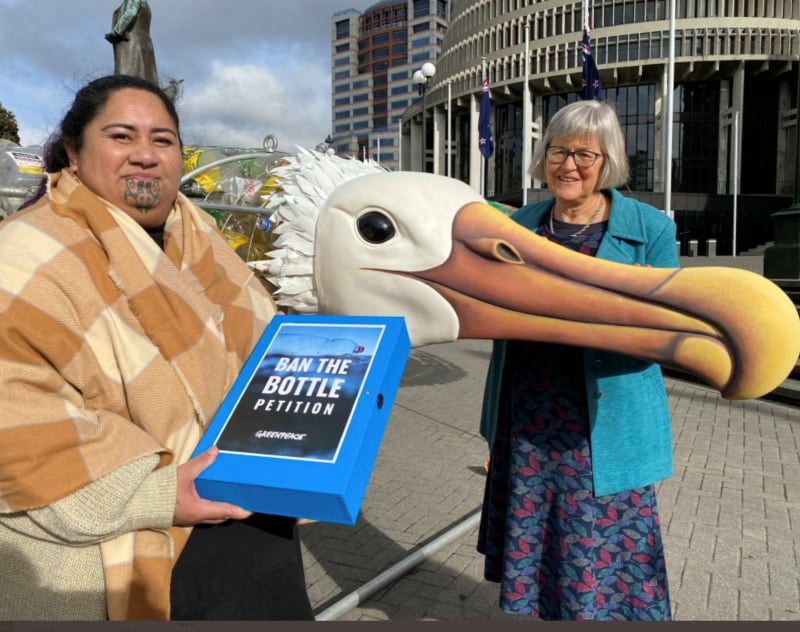Delegates and heads of states from across the world are gathering at Sharm El-Sheikh in Egypt to discuss climate action and the future of this world.
But 5000km away, in a small village in Kerala, India, a group of protestors are on an indefinite hunger strike that started 86 days ago.
These events are linked by one company - Coca-Cola.
Corporate sponsorship
Coca-Cola is a corporate sponsor of COP27, UN’s global Climate Summit, which kicked off this week.
The irony is not lost on Climate Change Minister James Shaw who leaves for Egypt today.
“It’s really unfortunate that the UN’s climate conference needs corporate sponsorship and you have to ask what kind of a signal is being sent," Shaw says. "It’s a pretty absurd situation- that’s fairly obvious.”
Green MP Teanau Tuiono has a word for corporate giants hijacking the kaupapa. "He raru tēnei Coca-Cola-nisation o te take nui o te ao- ko tēnei pōraru o te āhuarangi."
(It’s a big problem- the Coca Cola-nisation of an issue as significant as climate change.)
"Kaore au e rata ki tēnei ahua, ki tēnei momo kamupene e haere mai ki te tautoko."
(I do not like this situation - companies like these signing up as sponsors.”)
"I think we should be rejecting any kind of corporate sponsorship of these kinds of discussions," Greenpeace Aotearoa plastics campaigner Juressa Lee says, "because they are hijacking an important opportunity to come together and discuss the issue of our lifetime."
Having Coca-Cola as a sponsor, she says, "absolutely undermines the purpose of COP because Coca Cola, as we know, has been the world's worst plastic polluter four years in a row."
But plastic pollution is not the company’s only environmental impact.
Plachimada: A David vs Goliath tale
Vilayodi Venugopalan is seated opposite the gates of a now-defunct Coca Cola bottling plant in Plachimada in the southern Indian state of Kerala. His team is on day 87 of a hunger strike- an indefinite satyagraha (peaceful resistance) launched to demand compensation for the damage the plant did to the people in the village 20 years ago.

Vilayodi Venugopalan (fourth from left) with other members of Anti Coca Cola People’s Struggle Committee staging a hunger strike outside the Coca Cola factory in Plachimada
Venugopalan is on a three-way conference call with me and Deepu Sebastian Edmond, an independent journalist based in Mumbai who is conducting this interview in Malayalam (the language he speaks).
“Coca-Cola sponsoring the climate change summit is like a robber using the loot to fund an awareness campaign against robbing," he says.
Plachimada is a predominantly adivasi village in the southern Indian state of Kerala. Adivasi is the term used to describe indigenous groups/tribes that settled in South Asia prior to the Aryan migration (second millennium BCE).
In 2000, Coca Cola acquired permission to produce half a million litres of soft drinks daily, drawing close to two million litres of water from the ground.
Shortly after, villagers started complaining of frequent illness, contamination and a sharp drop in groundwater level as well as crop yield. In 2002, protests began at the site, with adivasi women at the forefront. Protests became constant, as did police crackdowns and arrests. In 2003, matters went to the state high court. After a long-fought legal battle, Hindustan Coca Cola Beverages, the Indian subsidiary of the US-based global giant, shut down its plant.
“I am proud of Plachimada because it’s the only place where the company has stopped its operations,” says R Ajayan, an activist and a member of the Plachimada Solidarity Committee.
Ajayan was one of the parties in the Supreme Court Case that resulted in Coca-Cola ceasing production in 2006. “We succeeded in the first phase,” he says. ”The company closed, and looting of water resources stopped.”
The second phase has been the tricky part. A bill seeking compensation has bounced between the state and the central government and used as a political football between successive governments, says Venugopalan, even as an investigation committee concluded that the company’s operations had caused loss of livelihood, damage to health, damage to the agricultural sector, and "depletion and contamination of groundwater meant for future generations.
'They know how to lobby'
As COP27 kicked off, the Anti-Coca-Cola People's Struggle Committee held a protest, condemning Coca-Cola's involvement in the summit, and calling on the UN to, instead, intervene to seek damages.
“It is not easy to defeat a corporate company,” says Ajayan, citing the Bhopal Gas tragedy - the 1984 leak of a toxic gas from a pesticide plant of Union Carbide, an incident where victims still await fair compensation.
“They (corporations) are very powerful, and they know how to lobby.”
Coca-Cola is very much still on the sponsor list.
"Ehara tēnei karere he karere pai ki te tuku atu ki ngā rangatira o ngā iwi taketake puta noa o te ao," Tuiono says.
(This is not a good message going out to indigenous movement leaders around the globe.)
"The plastic crisis is a global crisis," but it is also domestically relevant, says Juressa Lee. "We know whales in the Hauraki Gulf are consuming millions of microplastics each day. We know that shellfish in the Bay of Plenty have been found with microplastics. "
"Here in Aotearoa, we are being sold about a billion plastic bottles every year, and Coca-Cola has a huge market share of that."

Juressa Lee (Te Rarawa, Ngāpuhi, Ngai Te Rangi) is Greenpeace Aotearoa's Plastics campaigner
Money on the table
A country that is organising an event like the Climate Summit must find the money for it, however, Tuiono says.
And finding it doesn’t necessarily undermine climate action, Shaw says.
“Global efforts are the work of nations, I don’t think corporate sponsorship makes any difference to that.”
Halfway across the world, Venugopalan begs to differ.
“The UN should abstain from using sponsorship from a criminal company, which makes its money from exploitation of nature and its resources,” he says.
"The worst part," says Lee, is that Coca-Cola knows what it needs to do, if it really wanted to address the harms it is causing.
"They don't need to sponsor COP to do that."


